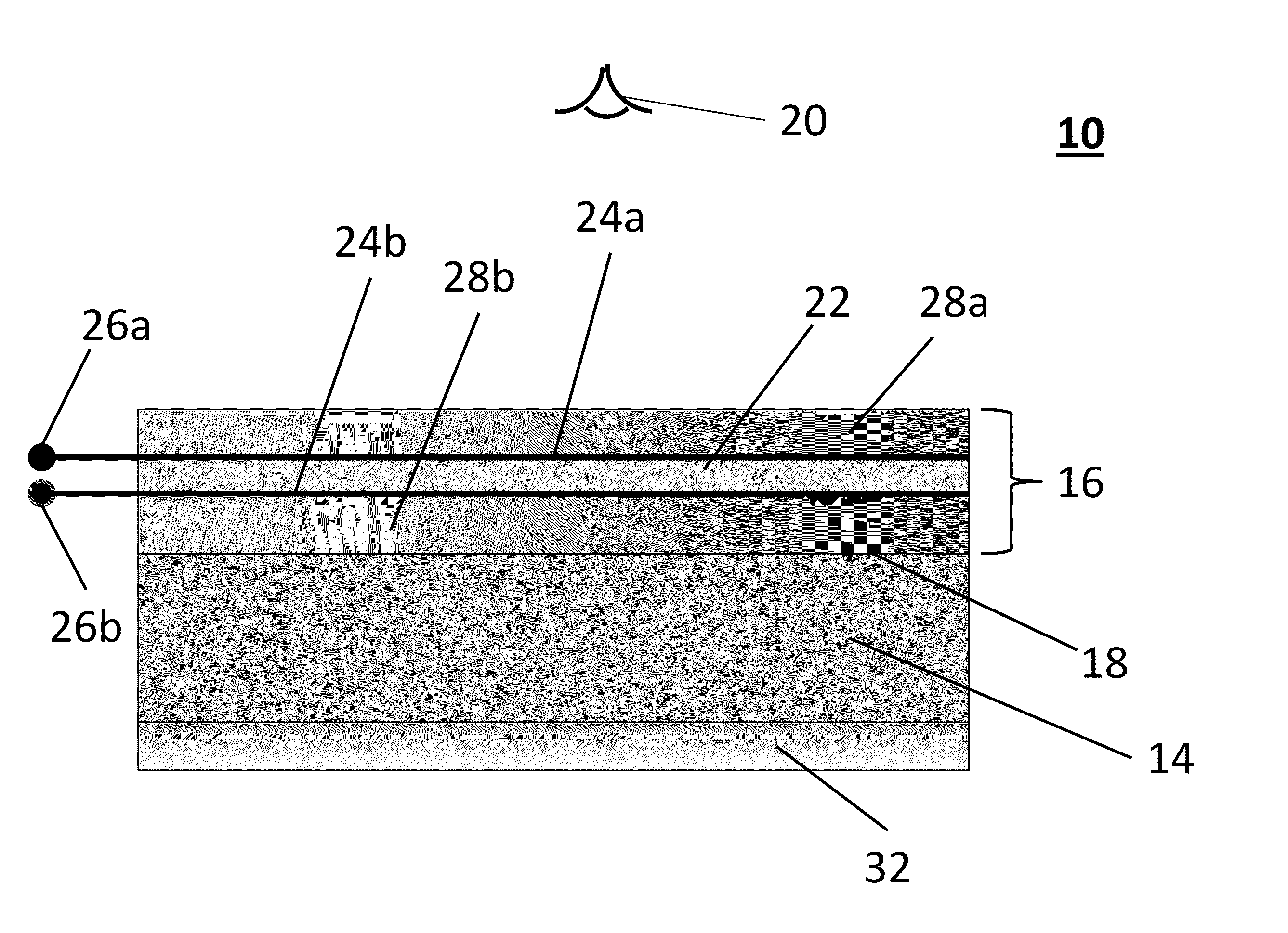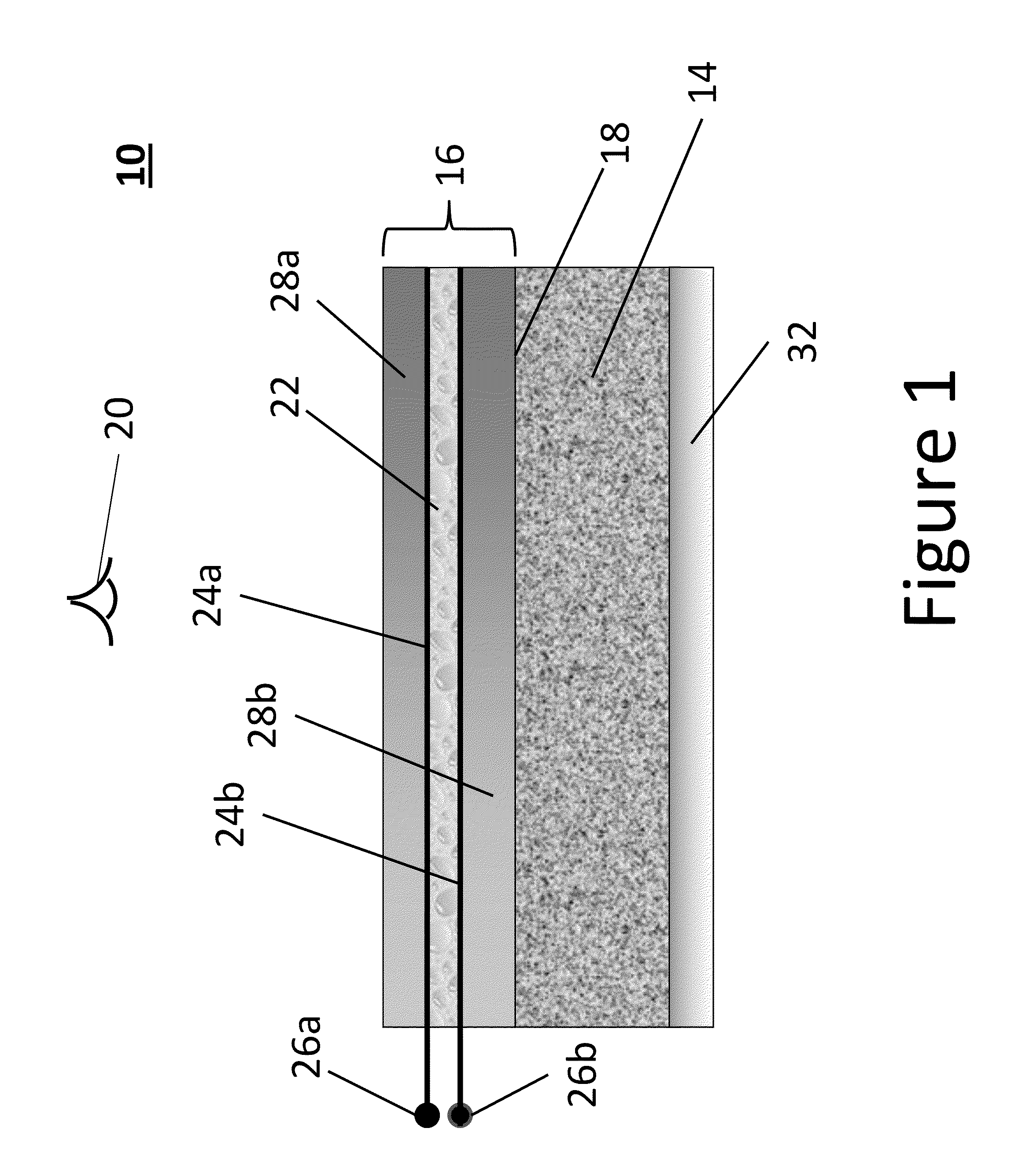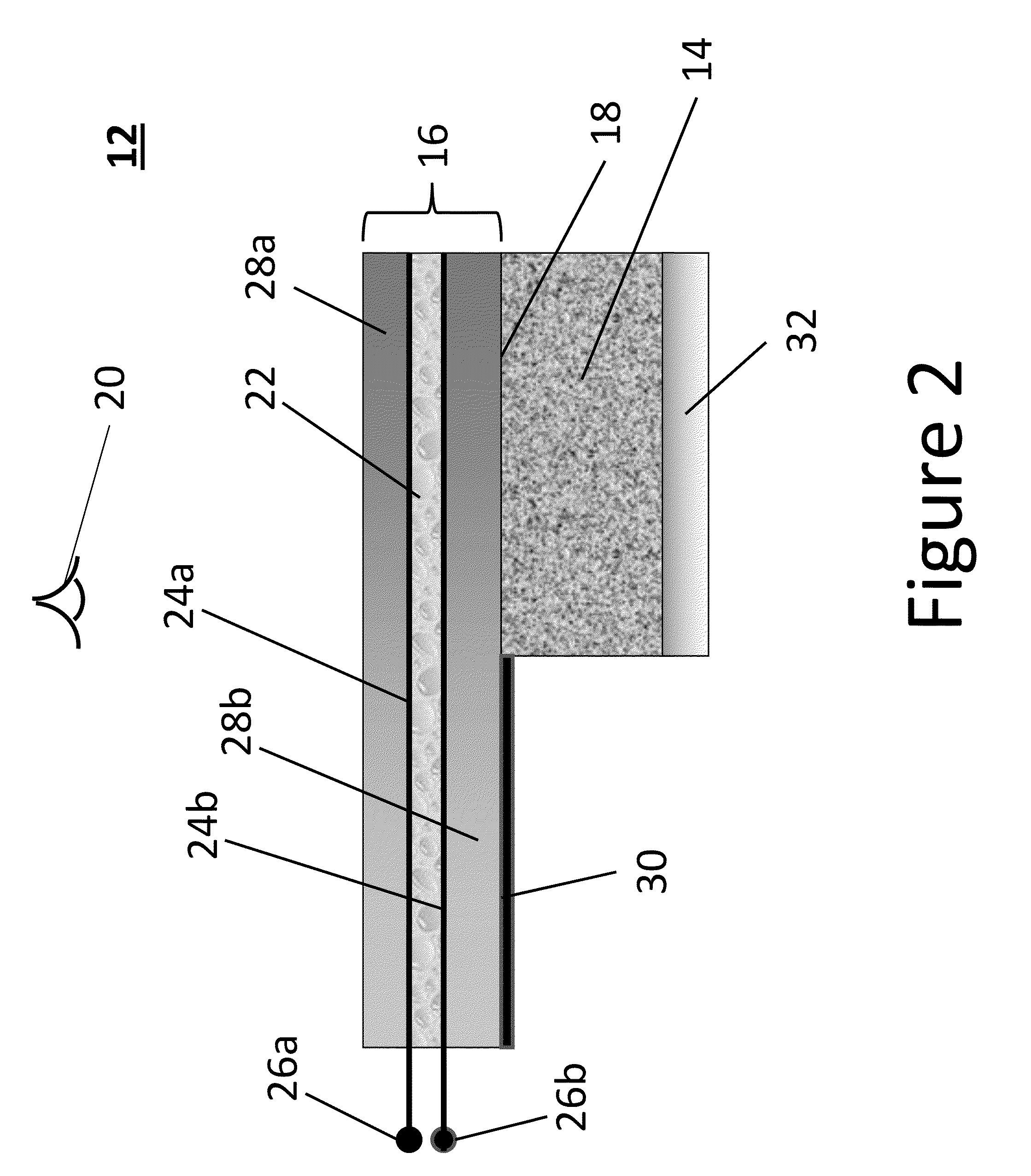Display with overlayed electronic skin
- Summary
- Abstract
- Description
- Claims
- Application Information
AI Technical Summary
Benefits of technology
Problems solved by technology
Method used
Image
Examples
example 1
Decorative Electronic Skin Example 1
[0061]A transparent electronic skin display was fabricated comprised of a triple stack of bistable polymer dispersed cholesteric liquid crystal layers as in FIG. 3. The layers were ordered such that the upper layer (closest to viewer) reflects red light; the middle layer reflects green light and the lower layer reflects blue light. The skin was made using 2 mil PET substrates each with an approximate area of 2×2 in2. Transparent conducting films using conducting polymer PEDOT were coated on the substrates. Bistable cholesteric liquid crystal dispersions were made using polymerization induced phase separation (PIPS) procedure as described in U.S. Pat. No. 7,351,506. Pre-polymerized liquid mixtures were mixed with 4.0 μm spacers for lamination between substrates. The single layer was first prepared using cholesteric liquid crystal reflecting at 640 nm. A small amount of the material was placed on one substrate. A second substrate was then laminated ...
PUM
| Property | Measurement | Unit |
|---|---|---|
| Length | aaaaa | aaaaa |
| Pressure | aaaaa | aaaaa |
| Electrical conductivity | aaaaa | aaaaa |
Abstract
Description
Claims
Application Information
 Login to View More
Login to View More - R&D
- Intellectual Property
- Life Sciences
- Materials
- Tech Scout
- Unparalleled Data Quality
- Higher Quality Content
- 60% Fewer Hallucinations
Browse by: Latest US Patents, China's latest patents, Technical Efficacy Thesaurus, Application Domain, Technology Topic, Popular Technical Reports.
© 2025 PatSnap. All rights reserved.Legal|Privacy policy|Modern Slavery Act Transparency Statement|Sitemap|About US| Contact US: help@patsnap.com



